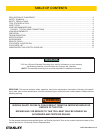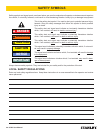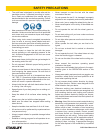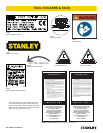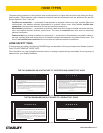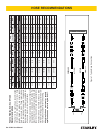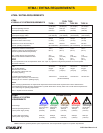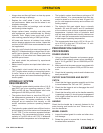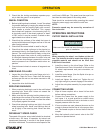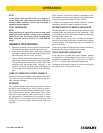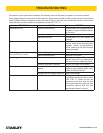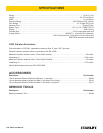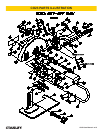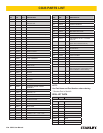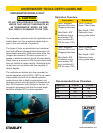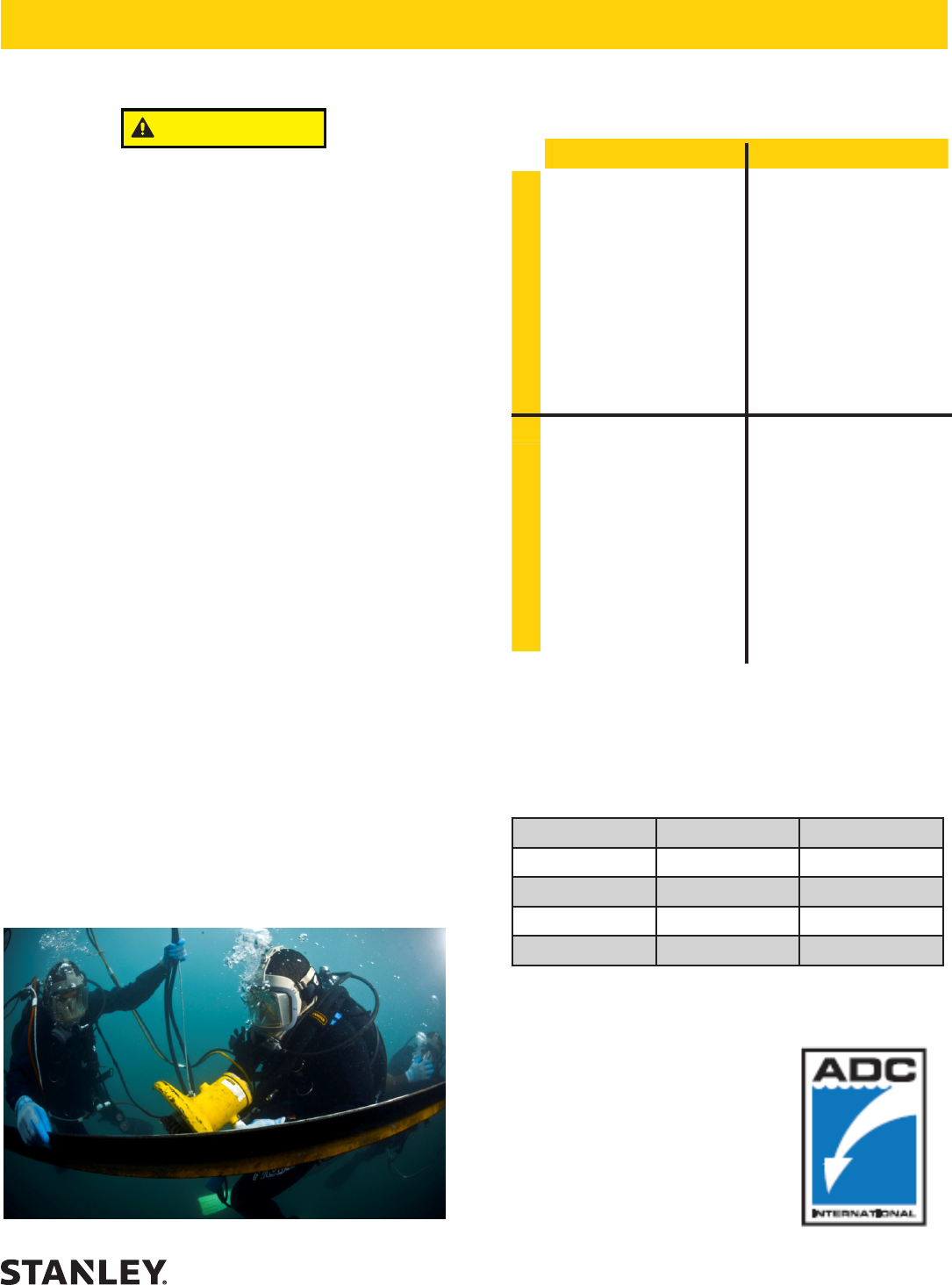
CO23 User Manual ◄ 17
For underwater hydraulic tools the applications are
broken down into four quadrants depending on
type of tool and method of operation.
The types of tools are percussive and rotational,
each with different characteristics allowing for dif-
ferent depth operation. With percussive tools, the
nitrogen accumulator PSI must counter the in-
crease in ambient pressure found at lower depths.
Since there is a maximum PSI for percussive tools
they are limited to certain depths. Rotational tools
do not have accumulators and thus capable of
deeper depths.
The methods are broken into diver operated or
remote operated vehicle (ROV). ROV's can reach
lower depths and with an on-board hydraulic
power source that is depth compensated, can
operate hydraulic tools at depths of thousands of
feet. ROV operation is still limited to the tool, for
example a percussive tool has the same depth
limitation whether ROV or diver operated.
UNDERWATER TOOLS DEPTH GUIDELINE
CAUTION
DO NOT USE HYDRAULIC TOOLS UNDER-
WATER THAT ARE NOT DESIGNATED AS
AN “UNDERWATER” MODEL, OR THIS
WILL RESULT IN DAMAGE TO THE TOOL.
Tools: Breakers,
Hammer Drills and
Chipping Hammers
Max Depth: 500' -
limitations due to
accumulator PSI
max (increase 40
PSI for every 100')
Tools: Grinders,
Saws, Chain Saws
Max Depth: 1000' -
Reference hose
sizing guide below
Tools: Breakers,
Hammer Drills and
Chipping Hammers
Max Depth: 500' -
limitations due to
accumulator PSI
max (increase 40
PSI for every 100')
Tools: Grinders,
Saws, Chain Saws
Max Depth: 1000' -
Reference hose
sizing guide below
Operation Overview
Percussive Rotational
DiverROV
Recommended Hose Diameters
Depth (ft) 8 GPM 12 GPM
100 5/8” 5/8”
300 3/4” 1”
600 1” 1”
1000 1” 1-1/4”
UNDERWATER MODELS ONLY



